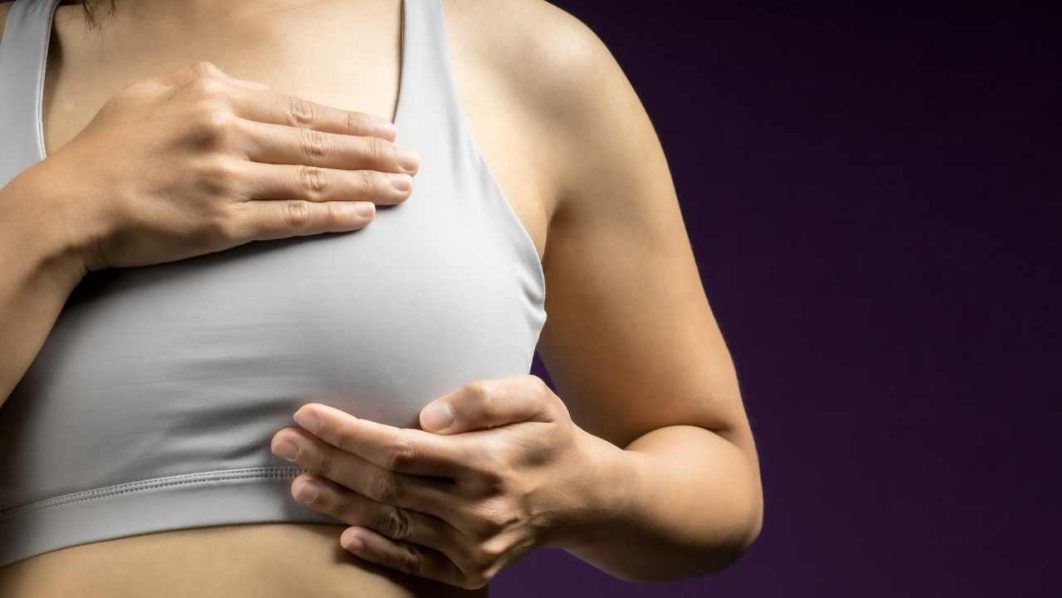
A man who was diagnosed with breast cancer says he was made to feel ‘isolated and lonely’ after an online support group declined his membership because of his gender.
David McCallion, 55, who is a community worker from Manchester, United Kingdom was told he would have to have a mastectomy and feared his condition could be hereditary as his mum also had breast cancer. Desperate and in need of support beyond his family, he searched online.
“I tried to join a support group on Facebook. But they sort of politely told me that because I was a man it might prevent members from opening up – so I thought it was best that I didn’t join. I was effectively declined membership,” he said.
He continued: “I was made to feel like I was muscling in. But the last thing I wanted to do was jump up and down saying, ‘Look at me I’ve got breast cancer too.’”
According to charity Prevent Breast Cancer, just 390 men are diagnosed with the condition each year in the UK.
“But if the other 389 men feel anything like I did, something needs to be done for men with breast cancer.
“I will never be the same person I was before my diagnosis because, politely speaking, I didn’t realise how lonely this disease is.
“Cancer is [a] lonely full stop. But being a man in what I call the “pink world” of breast cancer – that’s even lonelier.”
McCallion, who has two sons, builder, Ryan, 27, and communications professional, Liam, 25, with his carer wife, Julie, 54, is now keen to break taboos surrounding male breast cancer, which has seen other men questioning his masculinity.
“When I tell other blokes about my diagnosis, half say, ‘Men don’t get breast cancer’, and I lift up my shirt and say, ‘Yes they do’.
“Some ask why I’ve had it, as if to say, ‘Are you really a man?’”

McCallion was diagnosed with gynaecomastia in 2015, a common condition causing men’s breasts to become larger than normal, according to the NHS. In April 2019, he noticed his right nipple was inverted and thought it must be related to the condition.
“I’d been seeing my GP for about a year, as I’d been struggling with anxiety after losing my mum, Joan at 91, in June 2018, after a long battle with dementia and breaking her hip.
“Then, in May 2019, I was just leaving his surgery, when I lifted my jumper and said, ‘What’s this?’
“The doctor looked at my nipple and told me not to panic, but said that we had to rule a few things out.”
McCallion was referred to Greater Manchester’s Royal Oldham Hospital on July 10, 2019, David was not ‘overly concerned.’
“I just assumed it was something to with my man boobs,” he said.
When McCallion was told that there was a 99 per cent chance it was going to be cancer. David’s first thought was how he was going to tell his family.
“My second thought was, ‘How am I going to tell everybody else I have breast cancer – as a man?’”
McCallion went back to the hospital with his wife a few days later to find out more.
“For the next eight minutes everything the doctor said was addressed to my wife and, in the end, I had to tell him to talk to me and not to her.
“He explained that he breaks this news to women day in day out, which is why he didn’t address me at first.”
He was told that he would need a full mastectomy on his right breast, which he delayed until after celebrating his wedding anniversary in August last year.
He later needed another 24 lymph nodes removed, that were found not to be cancerous, but is now on a gruelling regime of chemotherapy, which will last until the end of next month.
He is also facing further tests to find out if the condition is hereditary as his mother also had breast cancer. He was told his surgery had been a success but, after the lymph node tested positive, on October 4 David – who was not offered reconstructive surgery and does not want it – had a further 24 removed.
Now David McCallion is keen to make men aware that breast cancer can affect them, too, and is urging them to check themselves for tell-tale symptoms. He found the #bluegetittoo awareness campaign about male breast cancer.
“Men need to talk about their health more,” he said. “By the time they finally do it’s often too late.
“There’s a culture of checking down below for testicular cancer and that needs to be broadened to include other areas, including the chest area.”
Follow our socials Whatsapp, Facebook, Instagram, Twitter, and Google News.







